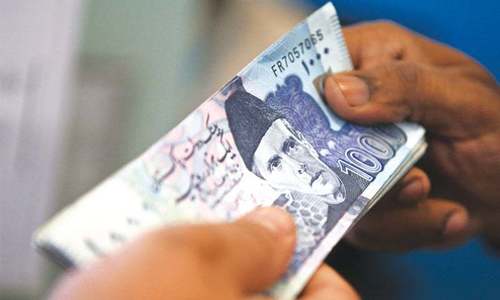ISLAMABAD: Caretaker Finance Minister Dr Shamshad Akhtar on Monday said the government was committed to promoting both industry as well as the regulators of Islamic banking.
“When I was governor of State Bank of Pakistan (SBP) few years back, we were promoting the Islamic finance industry in very aggressive manner, and the subsequent governments were also engaged in promoting the industry,” the minister said while responding to a resolution moved by Shibli Faraz in the Senate.
She said in order to promote the Islamic banking, close to $3.6 billion worth of sukuk (Islamic bonds) had already been floated on the international market.
Islamic financial banks, which took off in early 2000s, have been growing at a fairly decent rate of 14.5 per cent. “We have five full-fledged banks and 16 conventional banks that are involved in this business,” she added.
Shibli Faraz moved a resolution in the Senate urging the government to take necessary steps to abolish Riba (interest) at the earliest and at least 30pc of all new government debts should be replaced with Shariah-compliant mode.
The resolution also recommended that the funds of the Ministry of Religious Affairs and Inter-Faith Harmony related to Hajj, Zakat and Ushr should be replaced or invested under Shariah compliant mode.
Dr Shamshad said the government had not any problem to replace 30pc of government debts with Shariah-compliant mode but expanding the Islamic banking at fast pace would be detrimental because we have to let the market grow naturally.
She said the past governments had been trying to float sukuk, but much more government properties were needed for the volume that was required.
“There is no dispute currently also in fact that I have met the Islamic banking heads who also highlighted sukuk-related issues for being able to meet the liquidity reserve requirement which is the real problem, she added.
She added that in order to prepare for additional sukuk instruments it would take a long time.
Shibli Faraz said Islamic banking was a reality in Pakistan and worldwide and the government should allocate some proportion of funds to the Islamic banking sector for borrowing.
Senator Mushtaq Ahmed said in the 1973 constitution, it is mentioned said that Riba system would be abolished as soon as possible, however, despite laps of 45 years it could not be done away with.
He said on the one hand non-Islamic Western countries were moving towards zero interest rate due to flawed high interest rate system, while on the other hand in Pakistan, the interest rate was making higher.
Senator Ata-ur-Rehman said Riba was a prohibited system in Islam which had been strictly prohibited in the holy Quran. He also urged the government to put deposits of Hajj, Zakar, and Usher in current accounts rather than in Riba based saving accounts.
Lauding the resolution moved by Shibli Faraz, he said Shibli Faraz was worthy to be praised who had raised such an important matter.
Rehman Malik said sukuk were also a form of Riba based loan and it had nothing to do with Islamic system.
He questioned that whether the government was planning to replicate any successful model of any country like Turkey, Argentine to get rid to the rapidly growing foreign debt.
Meanwhile, responding to a point raised by Senator Mehr Taj Roghani regarding imposition of taxes on tobacco growers in districts Swabi, Mardan, Charsada, Buneer, the minister clarified that tax was not being collected from the growers but it was collected from the purchasers.
She said there were two types of taxes including federal excise duty and sales tax on the tobacco and the burden of taxes is totally on the purchasers instead of the growers.
Mushtaq Ahmed Khan said the growers were suffering and they were getting only a tiny share of what the tobacco industrialists earn.
He said the industrialists were also transferring burden of the taxes to the growers.
He also proposed to form a senate committee to discuss this matter in detail.
Published in Dawn, July 11th, 2018












































